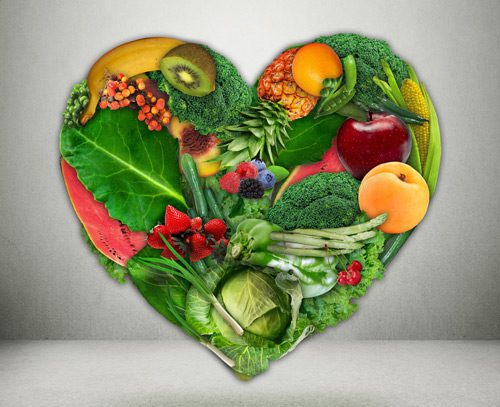Following a healthy nutritional diet is important to everyone, but for those in recovery from a drug or alcohol addiction, following a balanced diet is crucial. A substance use disorder takes a huge toll on all aspects of a person’s body and brain. A healthy diet can help repair the harm.
How Addiction Affects Nutrition
Addiction can cause digestive issues, nutritional deficiencies, and depleted levels of essential amino acids, vitamins, minerals, and fats, which can cause a number of physical and mental problems. Although each substance varies in its effects, the one thing they all have in common is that they have a negative impact on the body’s ability to get proper nourishment.
People who have a substance use disorder generally experience one or more of the following ways drugs or alcohol can impair their nutrition:
- Loss of appetite or forgetting to eat
- Making poor food choices, such as living on a diet of sweets or fast food
- Malnourishment resulting from not eating consistently or from the body not being able to absorb the nutrients taken in
- Damage to the organs involved in breaking down, processing, and storing nutrients
- Gastrointestinal disorders that prevent nutrients from being absorbed, including chronic gastrointestinal tract inflammation, leaky gut syndrome, irritable bowel syndrome, fungal intestinal infections, pathogenic bacterial overgrowth, and acid reflux
- Low blood sugar (hypoglycemia)
The Benefits of Following a Healthy Nutritional Plan
When a person is in recovery from a substance use disorder, the benefits of eating a healthy diet are numerous. Proper nutrition provides greater energy and a positive outlook. It helps people feel better physically, mentally, and emotionally.
Additional benefits include:
- Rebuilding damaged organs and tissues
- Regaining the correct functioning of systems in the body, such as the nervous system and gastrointestinal system
- Strengthening the immune system
- Reducing the risk of disease
- Improving memory and cognitive skills
Margherita Grotzkyj-Giorgi, Ph.D., explains that when the body is not being properly nourished, it cannot nourish the brain. A person in recovery who follows a healthy nutrition plan will have a well-nourished brain and will generally experience fewer withdrawal symptoms. They will also have an increased probability of achieving long-term recovery.
A Healthy Nutritional Plan
According to an article in Here To Help, during the first year of recovery, nutritional needs are higher than normal because some of the nutrients taken in are used to detoxify the body. In the early stages of recovery, it is best to have small frequent meals, so your body becomes accustomed to digesting the food.
It is important throughout recovery to eat a diet that balances the levels of serotonin in the brain. Serotonin is a key hormone that impacts the whole body and helps with relaxation. It fosters feelings of well-being and happiness while stabilizing mood. Serotonin also helps with memory, eating, digestion, and sleeping. Foods rich in serotonin include complex carbohydrates such as legumes, root vegetables, breads, and pastas. Complex carbohydrates provide the best nutrition when combined in meals that include protein.
The article in Here To Help recommends the following as a healthy nutritional diet for recovery:
- Complex carbohydrates: grains, vegetables, and fruits should comprise about half of daily calorie intake
- Protein: two servings a day of two to four ounces of fish, meat, or other high protein food such as tofu
- Calcium-rich foods: two or three cups a day of dairy products, calcium-fortified beverages, kale, or tofu
- Fat: 30% of your daily calorie intake should include healthy fats such as olive, canola, flaxseed, or fish oils
Tips to Maintain Good Nutrition in Recovery
- Balanced Diet: Strive for a balanced diet that includes a variety of food groups, such as fruits, vegetables, whole grains, lean proteins, and healthy fats. This provides essential nutrients your body needs for recovery.
- Stay Hydrated: Drink plenty of water throughout the day. Proper hydration is crucial for overall health and can help with detoxification and energy levels.
- Regular Meals and Snacks: Establish a regular eating schedule with three meals and snacks in between. Consistent eating helps stabilize blood sugar levels and reduces the risk of cravings.
- Protein Intake: Include sources of lean protein in your diet, such as chicken, turkey, fish, beans, and tofu. Protein is essential for repairing and building tissues.
- Limit Sugar and Processed Foods: Avoid excessive consumption of sugary snacks, fast food, and highly processed foods. These can contribute to mood swings and cravings.
- Incorporate Fiber: Fiber-rich foods like whole grains, fruits, and vegetables promote digestive health and can help stabilize blood sugar levels.
- Healthy Fats: Include sources of healthy fats like avocados, nuts, seeds, and olive oil in your diet. These fats are important for brain health and overall well-being.
- Vitamins and Minerals: Focus on foods rich in vitamins and minerals, especially those that support recovery, such as vitamin B complex, vitamin C, magnesium, and zinc.
- Avoid Caffeine and Nicotine: If possible, reduce or eliminate caffeine and nicotine consumption, as they can affect sleep and mood stability.
- Mindful Eating: Practice mindful eating by paying attention to your body’s hunger and fullness cues. This can help prevent overeating or undereating.
- Meal Planning: Plan your meals and snacks in advance to ensure you have nutritious options readily available, reducing the temptation to make unhealthy choices.
- Supportive Environment: Surround yourself with a supportive environment that encourages healthy eating. This may include finding friends or support groups who share your nutritional goals.
- Exercise Regularly: Incorporate regular physical activity into your routine. Exercise can improve mood, boost self-esteem, and support overall health.
- Manage Stress: Stress can lead to emotional eating or cravings for unhealthy foods. Develop stress management techniques such as meditation, deep breathing, or yoga.
- Avoid Triggers: Identify and avoid situations or people that may trigger cravings for unhealthy foods or substances.
If You Need Help
If you or a loved one is struggling with an addiction to drugs or alcohol, now is the time to get help. At Canyon Vista Recovery Center located in Mesa, Arizona, our team of caring professionals can answer your questions and help you begin your journey to living a clean and sober life.
Are you or a loved one looking for a Tempe alcohol rehab? Learn more about programs offered at Canyon Vista Recovery Center.
Contact us at (888) 979-1840





